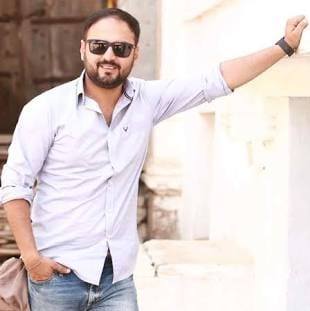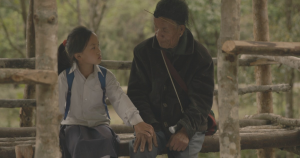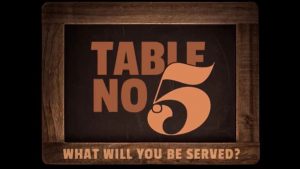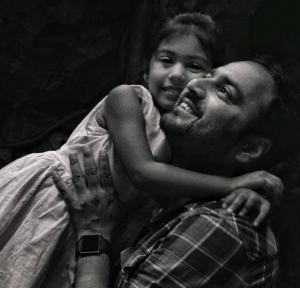The sequel of Stree will happen when the right script is in place

Amar Kaushik is not just a filmmaker. He is a storyteller. One who always wants his stories to leave a message for the viewers, be it through his short film (Aaba) or full-length feature films (Stree and Bala). The son of a forest ranger father and an educationist mother, Amar has many storytellers from the film industry of whom he is a big fan. “Filmmakers like Bimal Roy, Hrishikesh Mukherjee, Rajkumar Hirani and Sriram Raghavan have inspired me with their works,” he says. But Amar perhaps has got storytelling in his genes — the interesting tales his mother narrated to him as a child have always remained with him, he says. Proof of which is Aaba, a story narrated by Amar’s mother which was turned into a short film by him and he won national and international accolades and awards.
In an e-mail interview with Saurabh Tankha, Amar talks about how he forayed into films, the upcoming sequel of Stree, the existence of godfathers in the film world and life during the lockdown period
Walk us through your journey from Medo (Arunachal Pradesh) to Mumbai with stopovers in Kanpur and Delhi…
I moved to Kanpur when I was in 7th std and continued to stay there till I finished my graduation. I was on my own in Kanpur, and had a great time exploring life and making friends. I took up small jobs to save money for my further education and my Mumbai dream. I pursued my Masters in Mass Communication from Delhi and immediately moved to Mumbai. I received my first opportunity with Miditech where I worked on TV shows.
While I was still on TV projects, Raj Kumar Gupta was making his first film, Aamir and secured a place for myself in his team. After that I continued to work as an assistant director with directors like Onir, Raj (Nidimoru) & (Krishna) DK and Raj Kumar Gupta. In 2016, I decided to make my first short film Aaba which went on to win many awards globally, including the National Awards in India.
When the son of a forest ranger father and an educationist mother told them that he wanted to make a career in the film industry, what was their reaction?
As expected, my parents were not happy with my decision as they did not know anything about the film industry and wanted me to take up a more secure option as my career. However, I had made up my mind and was already planning my path to my aim, so probably they gave in to my decision.
How was the Stree experience? Did you expect it to gain so much popularity and get so much love from the audiences?
Stree was my first full-length commercial film which belonged to an unconventional genre and gave us ample opportunity to experiment. I kept my expectations in control with the film’s box office performance but was overwhelmed by the response received. It was a big morale booster for the entire Stree team.
Do you feel the expectations of everyone around skyrocket after you give a big hit? How much pressure is there on your shoulders when you are attempting a sequel of successful movie like Stree?
I think it’s very much normal for people to have expectations after your first film like Stree is a hit. However, it’s up to us to work to the best of our ability and not succumb to the pressure. As for the sequel of Stree, it will happen when the right script is in place as we do not want to disappoint our audience.
Aaba was based on one of the many stories your mother narrated to you when you were a kid. What was so different in this story that you chose it to be your first attempt at filmmaking?
Aaba is one of the stories my mom told us during the period we stayed in Arunachal Pradesh. My parents were posted in the state for a long period of time. My mother was a teacher in a government school and Aaba is based on an incident that happened with her. It is the story of a man waiting for his death and preparing for it.
The idea itself is terrifying but if you look deeper, its emotionally moving. I guess Aaba’s honesty, simplicity and reality was able to strike the right chord with me and later with the audiences and the juries across film festivals where it was screened.
What were the learnings during the making of Aamir, No One Killed Jessica and Ghanchakkar?
These films have been my foundation in filmmaking, and I have learnt a great deal from the director Raj Kumar Gupta. Apart from learning the technical aspects of filmmaking, all the films I have worked on as an associate/ assistant director taught me to believe in the story and deliver it with all my conviction. These films also taught me the value of team and the importance of everyone in front and behind the scenes that make a film happen.
Are godfathers in film industry a myth or do they really exist?
I firmly believe that people notice and support skills, hard work and sincerity in every industry and the same applies to the film industry as well.
OTT or cinema or television. Your pick and why?
I have been a Bollywood buff and have enjoyed all sorts of films made in our country. I have enjoyed watching films on big screen and learnt from each film I have watched. While television is a huge medium and OTT has picked up very well, cinema remains my first love. Having said that, I would love to try my hands at telling stories on OTT because there are stories I want to tell stories that can’t be limited by time duration.
How have you engaging yourself during the lockdown period?
I am staying indoors and thus getting to spend a lot of time with my wife and seven-year-old daughter. While I continue to work with my team on scripts, I have been reading up a lot to enhance my knowledge about the art of filmmaking. I am also reading up about great achievers, world history and Nature. The lockdown has given us an opportunity to stop, ponder and upgrade our skills and I tried to do just that. I also took this time to focus on my health and started working out regularly.
Plans for future…
I hope to continue making honest films and work with great talents in the industry. I also hope to keep people around me happy with whatever little I can do for them.







